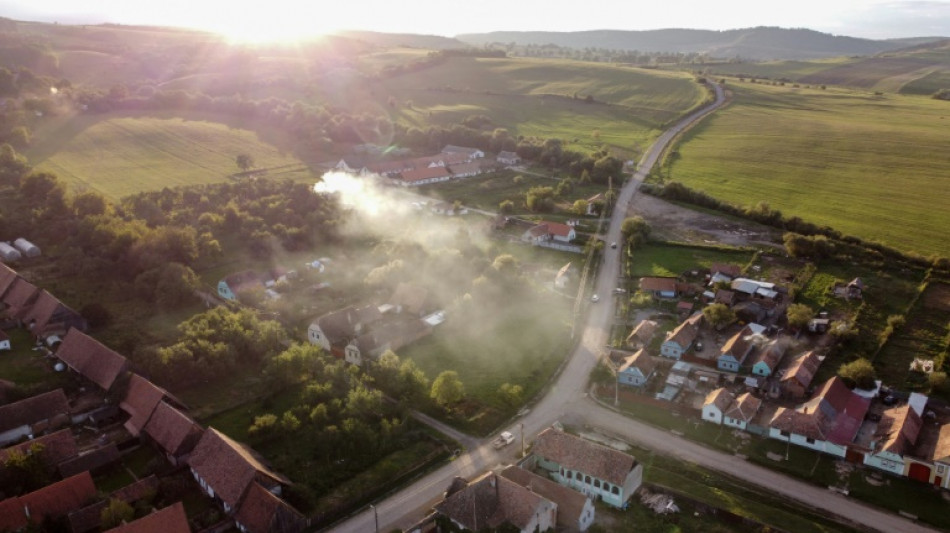

Transylvanian village shines under new British king's patronage
The Romanian village of Viscri, in the picturesque region of Transylvania, won the heart of the then prince Charles when he first visited in 1998.
Enchanted by its dirt streets, horse-drawn carriages and brightly coloured houses nestled in green hills, the environmentalist and nature lover became a regular visitor.
In 2006, he even bought his first house there: a bright blue building known to all the locals.
What was initially an occasional princely residence has since been transformed into a museum dedicated to botany, another of the new king's passions.
"His Majesty the King has not stayed here for a few years, but he has left many traces," Caroline Fernolend, president of the Mihai Eminescu Trust, told AFP.
Under Charles's sponsorship, the foundation has renovated several properties in Transylvania with traditional methods and materials to preserve the heritage.
"He also financed an ecological wastewater treatment plant based on reeds and a new water drainage system for the village, without advertising it," she said.
Every year, tens of thousands of tourists discover the timeless atmosphere of Viscri.
Guest houses have sprouted up in response to its popularity -- in contrast to the abandonment that characterises much of the Romanian countryside, one of the EU's poorest members.
"Viscri was a forgotten village and now small houses are selling for over 40,000 euros ($40,000)!", said retired sports teacher Ion Stoica, who cycles from his neighbouring village to Viscri every evening.
That sum is a small fortune in this region, he added.
- Royal stamp -
Not all residents of the hamlet, home to 400 people and dominated by a UNESCO-listed church, share Stoica's enthusiasm.
Royal honours "did not bring prosperity" to Viscri's inhabitants, says another resident, seated on a bench in the village.
Yet no one denies the restoration efforts undertaken under the leadership of Charles.
Charles claims descent from a 15th-century prince known as Vlad the Impaler, the historical inspiration for Bram Stoker's "Count Dracula". He has even said that Transylvania is "in my blood".
"It's such a beautiful region," said Ana Maria Plopeanu, 35, whose grandparents are from Transylvania and who visited Viscri with her partner.
"Everything is so simple here, so calm... we understand why the prince fell in love" with the region.
But rather than staying at Viscri, in recent years Charles has stayed in Valea Zalanului, some 100 kilometres (60 miles) west.
There, his residence is hidden away at the end of an unpaved road, where a black veil is now affixed to the gate as a sign of mourning following the death last week of Charles's mother, Queen Elizabeth II.
A sign prohibits access to the curious -- not enough, however, to deter two British royalists, a mother and daughter, who said they had made the trip from London to get to know the places dear to their new king.
They will head back to London soon, just in time to attend the funeral of the late queen.
T.Grant--MC-UK



